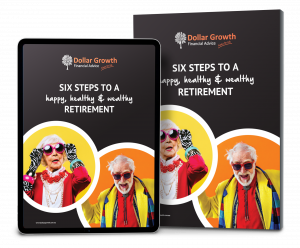With the talk of a high likelihood of a US recession we thought we would publish an article on the likely effects of a US recession from an Australian Perspective. Whether the US is in or heading to a recession is a topic of debate and our feeling has been for some time now that the US would likely end up in recession. The banking crisis has likely accelerated that likelihood in our minds.
The global economy is interconnected, and economic downturns in one country can have far-reaching effects on other countries, including Australia. The United States is the world’s largest economy, and when it experiences a recession, it can have significant impacts on the Australian economy. In this article, we’ll take a closer look at the effects of US recessions on Australia.
What is a recession?
A recession is defined as a period of economic decline characterized by a decrease in gross domestic product (GDP), employment, and business activity. Recessions are typically measured by the length of time that the economy experiences negative growth, with two consecutive quarters of negative GDP growth commonly used as a benchmark.
Effects of US recessions on Australia
The US and Australian economies are closely linked, with the US being one of Australia’s largest trading partners. When the US economy experiences a recession, it can have a ripple effect on the Australian economy in several ways.
Trade
The US is one of Australia’s largest trading partners, and a recession in the US can lead to a decrease in demand for Australian exports. When US consumers cut back on spending, they may buy fewer Australian products, which can hurt Australian businesses that rely on exports.
Commodity prices
Australia is a major exporter of commodities like iron ore, coal, and natural gas, which are used in many industries around the world. When the US economy experiences a recession, demand for these commodities can decrease, which can lead to lower prices for Australian exports.
Investment
The US is also a major source of foreign investment in Australia, with many US companies investing in Australian businesses and infrastructure. During a recession, US investors may become more risk-averse and pull their investments out of Australia, which can lead to a decrease in investment and slower economic growth.
Financial markets
The US economy is also closely linked to global financial markets, and when the US experiences a recession, it can lead to increased volatility in global financial markets. This can lead to a decrease in investor confidence, which can negatively impact the Australian stock market and other investments.
The US has experienced several recessions over the years, including the 1980, 1990, 2001, and 2008 recessions. The impact of these recessions on Australia varied depending on the specific circumstances at the time.
During the 2008 recession, for example, the Australian economy was able to avoid a recession due to its strong financial system and government stimulus measures. However, the recession did lead to a decrease in demand for Australian exports and a significant drop in the Australian stock market.
Disclaimer: This page may contain general advice. It does not take account of your objectives, financial situation or needs. You should talk to a financial adviser before making a financial decision. This has been prepared by Dollar Growth Financial Advice Pty. Ltd refer to the Financial Services Guide for details. While care has been taken in the preparation of this, no liability is accepted by Dollar Growth Financial Advice Pty. Ltd, its related entities, agents, representatives, employees for any loss arising from reliance on the information contained herein.
